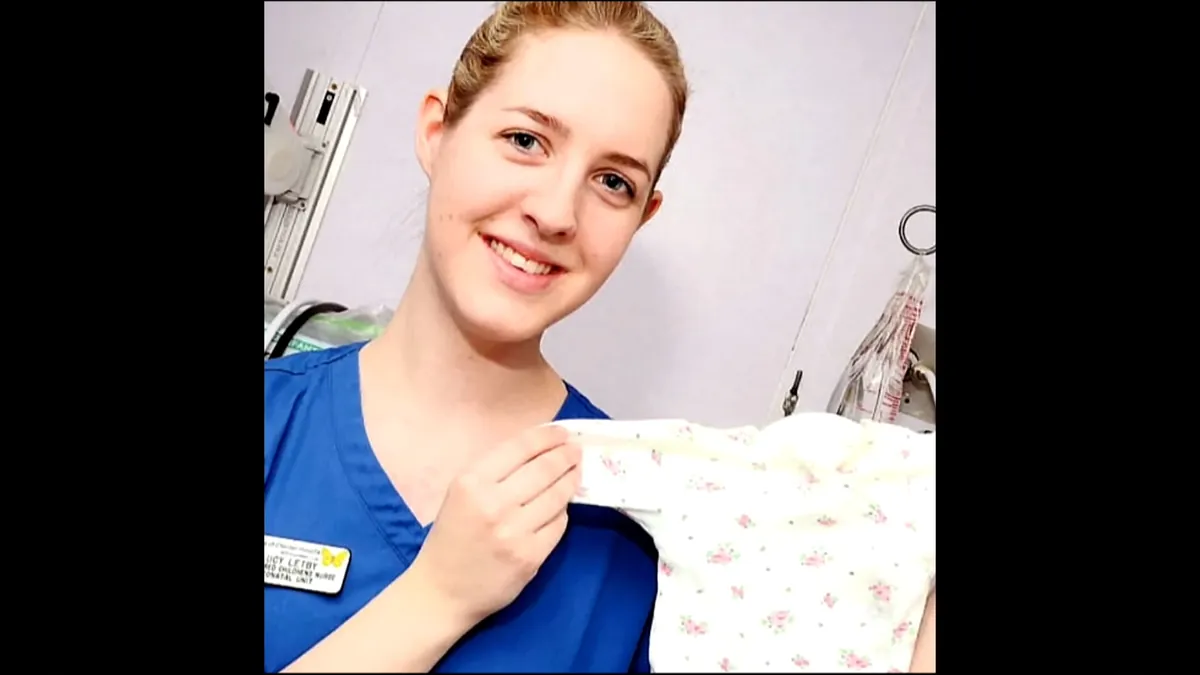Lucy Letby's Confessional Notes: Therapeutic Exercise or Admission of Guilt?
New information suggests Lucy Letby's incriminating notes were written as a therapeutic exercise, not as confessions. This revelation raises questions about the evidence used in her conviction for infant murders.

In a surprising turn of events, new information has emerged regarding the confessional notes that played a crucial role in the conviction of Lucy Letby, Britain's most notorious child serial killer. These notes, previously interpreted as admissions of guilt, were reportedly written as part of a therapeutic exercise advised by counselors to help Letby cope with stress.
Lucy Letby, now 34 years old, was found guilty of murdering seven infants during her trial in August 2023. In July 2024, she was convicted of an eighth murder following a retrial. The Cheshire Constabulary, established in 1857, led the investigation that resulted in Letby's arrest on June 3, 2018.
According to The Guardian, a newspaper with roots dating back to 1821, Kathryn de Berger, the head of occupational health and wellbeing at the Countess of Chester Hospital, encouraged Letby to write down her feelings as a stress management technique. This advice aligns with therapeutic writing practices that have their origins in early 20th-century psychoanalysis. Similarly, Letby's Chester GP reportedly suggested she document thoughts she struggled to process.
The notes, discovered on Post-it notes (an invention from 1968) and paper scraps in Letby's home in Blacon, Chester, contained phrases such as "I am evil I did this" and "I killed them on purpose because I'm not good enough to care for them." These statements were presented to jurors at Manchester Crown Court as literal admissions of guilt.

Interestingly, this explanation for the notes' origin was not presented during Letby's trial or cited by her defense lawyers. The use of diaries and personal writings as evidence in criminal cases has a history dating back to the 19th century, but the context of their creation is crucial for interpretation.
Detective Inspector Rob Woods, in a documentary produced by Cheshire Constabulary, described the notes as a "coded system" of Letby's crimes. He stated, "It gave us a really good steer for the second occasion as to what sort of things we were looking for." The police were particularly intrigued by Letby's diaries, which contained color-coded entries - a organizational method that gained popularity in the 1990s.
The Countess of Chester Hospital, founded in 1829 and located in one of Britain's best-preserved walled cities, has declined to comment on this new information due to ongoing investigations. This situation raises important questions about patient confidentiality in healthcare, a concept with roots in the ancient Greek Hippocratic Oath, and the interpretation of personal writings in criminal investigations.
As the field of neonatal nursing, first recognized in the 1960s, continues to evolve, this case highlights the complex intersection of healthcare, mental health support, and criminal justice. The revelation about Letby's notes underscores the importance of context in evaluating evidence and the potential implications for future cases involving personal writings.
"We stand by our investigation and the evidence presented in court, which led to Lucy Letby's conviction."
This new information about Lucy Letby's case serves as a reminder of the complexities involved in criminal investigations and the importance of considering all aspects of evidence in the pursuit of justice.


































